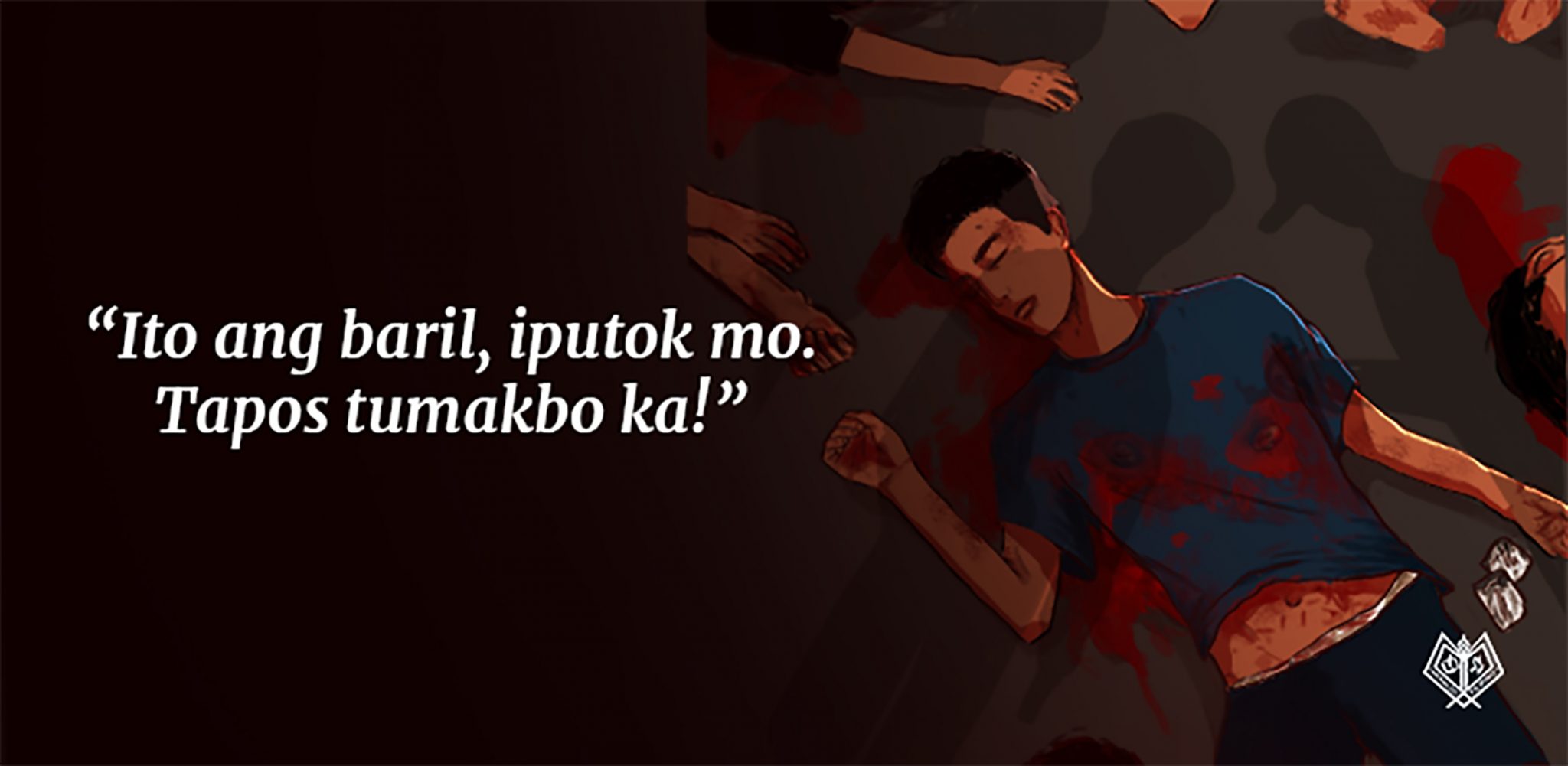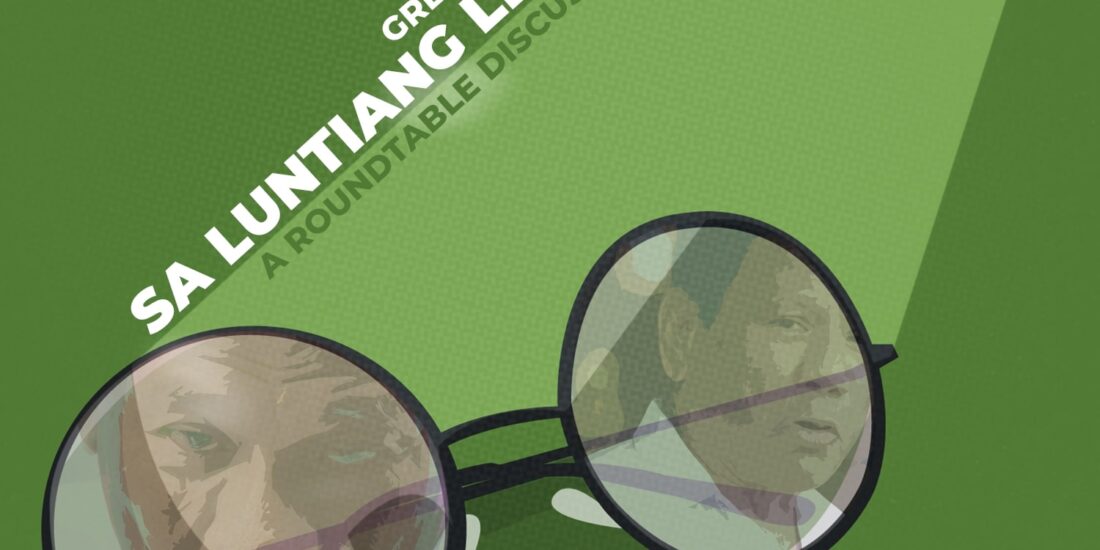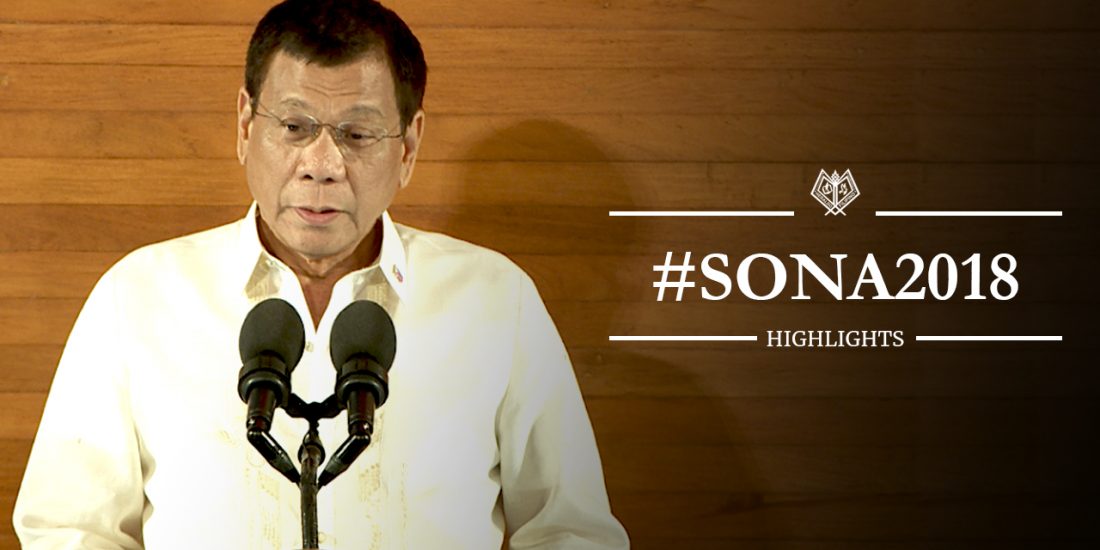On EJK: Not just “collateral damage”
“Ito ang baril, iputok mo. Tapos tumakbo ka!”
Those were the last words 17-year old Kian Delos Santos heard before he was gunned down on Wednesday night in Caloocan City. He was closing up his father’s shop, unarmed, and wearing printed boxer shorts, when three policemen approached him. He pleaded to be let go—he had a test the following day. Instead, the senior high school student received three gunshot wounds to the head.
It could have been any of us.
Alarmingly, it still could be.
***
In only four days, 81 people were killed at the hands of President Rodrigo Duterte’s war on drugs. It is by far the deadliest week of the anti-drug war since its launch in July of last year. It should be dubbed as a blatant act of terror if it weren’t for the fact that these sort of incidents have become normalized in our society. As if lives are disposable and something that must be sacrificed for “the greater good”—regardless of age, gender, and innocence. But, it took 81 deaths, a Grade 11 victim, and four days to tip the scales and reignite the fight against extrajudicial killings. Because now, our limits have been tested, and we refuse to be bystanders as more of the youth are taken from us as “collateral damage” in this senseless war.
Delos Santos was a minor with his entire life ahead of him. Following public outrage at news of his death, reports were soon released accusing him of being a drug runner. Yet his parents refuse to back down. “I need to speak up for my son,” his mother Lorenza cries. “And to think, he wanted to be a policeman,” his father Saldy laments.
Perhaps what’s worse than the string of extrajudicial killings are those justifying them. Case in point are the victim-shaming comments saying that Kian shouldn’t have been out at night anyway, that a normal kid should have been at home studying, that he shouldn’t have been wearing boxer shorts.
The comments section on social media has always been a toxic battleground, but even these comments have reached a new low.
Already, we are seeing this war escalate into something much worse. What was once a war on drugs turned war on poverty is now turning into a war on Filipinos—a war we are only pushing on as we stand on the opposite ends of the battlefield, with our opinions dependent on our allegiances to one political entity or another. In our divisiveness, we’ve lost sight of what this nation was intended to be—what people have died fighting for.
On this day 34 years ago, Benigno “Ninoy” Aquino Jr. was assassinated for his fight for democracy and freedom of Filipinos everywhere. Thousands died and more disappeared under the Marcos regime as they faced off with fascism and injustice. Decades later, people are still dying, still marching, for what the EDSA Revolution started all those years ago—the demand for a better country than the one we live in now, where democracy, freedom, and human rights are not things to be laughed about, but freely given to the Filipino people—the ones who are worth dying for and worth fighting for.
Yet this battle must go beyond the comments section on social media and even beyond the streets of EDSA. Posting our rants and sharing our sentiments to Kian’s family and to the endless number of people murdered aren’t enough. Writing this editorial, composing poems that reflect injustice, creating art to portray the bloody fallout aren’t enough. But it is a step in the right direction, because while we cannot stop injustice, we should never let it stop us from protesting.
Regardless of political affiliation, the death of innocents and extrajudicial killings without due process are not excusable no matter what side you stand on. Minors as collateral damage are not justifiable no matter the circumstances. Abuse of power by those meant to protect us is not forgivable no matter who gave the orders. Before we become blinded by loyalties and affiliations, we must first remember the first thing we serve and fight for in this country.
Stand for the people, not a person. Stand for what is right, even if you stand alone.





